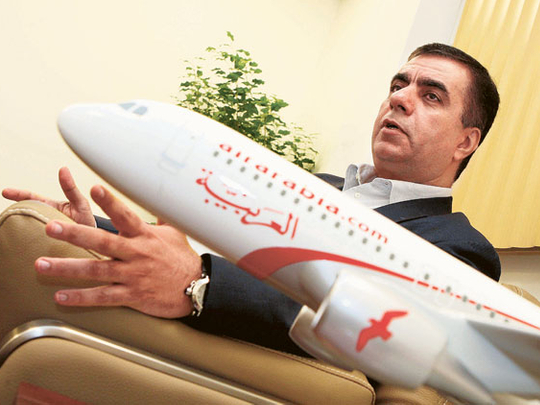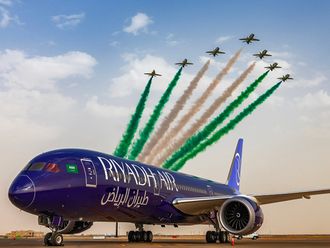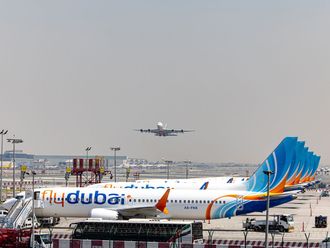
Dubai: The Middle East's first and largest low-cost carrier, Air Arabia, will launch its fourth hub in Jordan in June as it works to clear approvals.
"Jordan is a growth market from where we will be able to serve the Middle East and North Africa [Mena] and Europe," Air Arabia chief executive Adel Ali said yesterday at a conference.
The new base will see operations start exactly a year after the airline launched its Egypt hub with Air Arabia Egypt, a joint venture with Egyptian tourism company Travco Group.
It now flies to seven destinations from the Egyptian hub. Last week it moved to the new terminal at Alexandria's Al Borg Airport, from where it aims to launch a number of new routes.
The airline will take delivery of six A320s this year, while the bulk of its 44 A320s on order will be delivered in 2012 and 2013. These will be assigned to hubs in Sharjah, Morocco, Egypt and Jordan.
Growth
The Sharjah-based carrier is expecting up to 15 per cent annual growth in its business over the next four years.
"This will be in the business, fleet, passengers, et cetera," he said.
Ali said that if the Middle East and North Africa had a complete open skies policy and a single regulatory framework — such as that of European Union — Air Arabia's growth would surge to 40 per cent annually and it would be free to open up several more hubs.
One major target market for Air Arabia is Iraq. "We would like to open a hub there. As soon as we get [landing] rights into Iraq, we'll fly."
He said bilateral negotiations are taking place, and while they may be difficult, the airline is "looking forward" to tapping into that growth market.
In terms of the possibility of any additional hubs, Ali said that any country in the Mena region where it would make good business sense to have a hub, could be a potential base.
However, government policies, bilateral agreements and other regulations present a challenge.
Rising fuel costs
As airlines come up against the uncontrollable challenge of rising oil prices that account for 25 to 45 per cent of operating costs, analysts are suggesting alternative fuels. Sharif Ellaboudy, assistant professor, College of Business Science at Zayed University, said: "There are obviously opportunities that exist with higher oil prices. There's been a lot of research on bio-fuel and some airlines are looking into using it as a resource.
"Alternative fuel is moving and it's moving fast, it's generally good for the airline's costs."
He said that discussions on taxing fuel emissions could increase the operating costs of the airlines.
- 15%: annual growth expected over next four years
- 7: number of destinations from Egyptian hub











